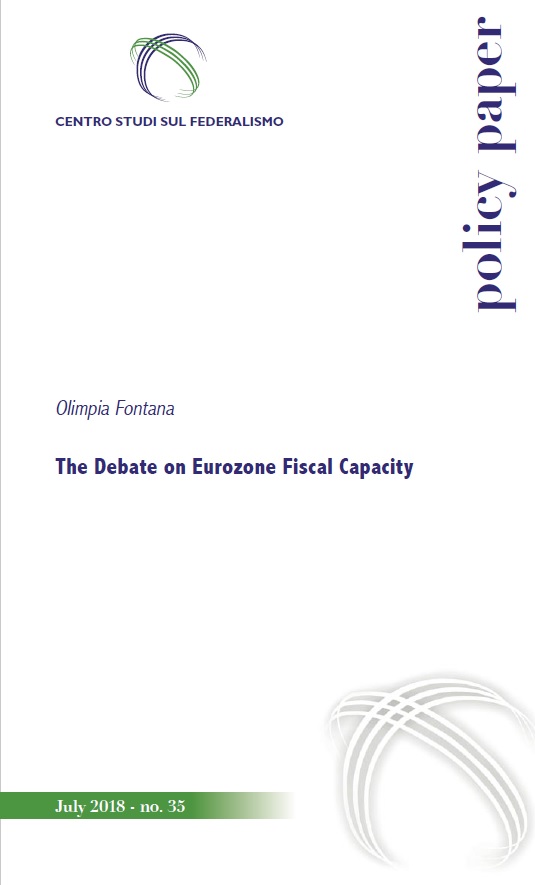Olimpia Fontana
July 2018
On December 2012, the then President of the European Council Herman Van Rompuy proposed in “Towards a Genuine Economic and Monetary Union” the creation of a budget for the eurozone. At this stage fiscal capacity was conceived of as a financial support to countries who had agreed to implement structural reforms as recommended by the European Commission.
Later, fiscal capacity assumed different understandings, either as a true stabilisation mechanism against large asymmetric shocks, or as a fiscal backstop to the banking union, as a resolution fund common to eurozone countries.
Some doubts can be raised about the fiscal capacity of the eurozone as a support for reform. Is it possible to restrict the commitment to making structural reforms to the eurozone countries only, given that the European Semester, which includes national reform programs, is a procedure for all Member States (MS) of the European Union? As regards the fiscal backstop, although completing the banking union is considered by some observers to be a priority that alone would be enough to stabilise the eurozone, for others a stabilisation component is still necessary, given the pro-cyclicality of financial markets in times of crisis.
Macroeconomic stabilisation is therefore the most consistent form of fiscal capacity for the eurozone, for various reasons: the impossibility for a MS to resort to exchange rate devaluation; the limited scope of monetary policy beyond a certain level, through the management of the interest rate and unconventional monetary policies; the rules of fiscal consolidation that weigh on national budgets.
Various proposals have been presented for a stabilisation function, at different levels (from institutions, national governments and among academics). They all focus on making the eurozone more resilient against shock, but they disagree, for instance, on the mechanism through which to collect and distribute resources, conditionality on access and use, use of resources and duration. [...]

 En
En  It
It 



